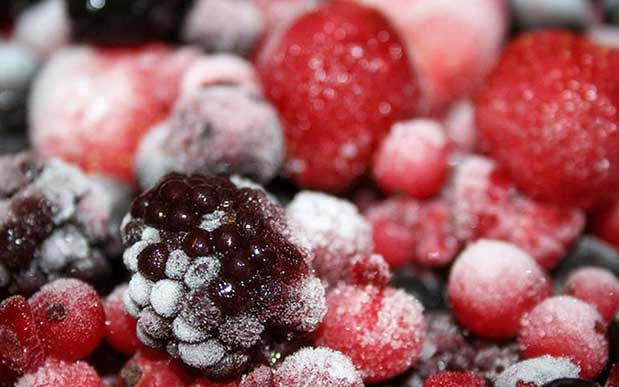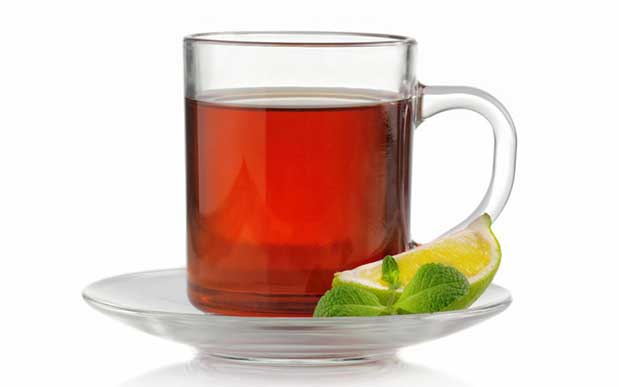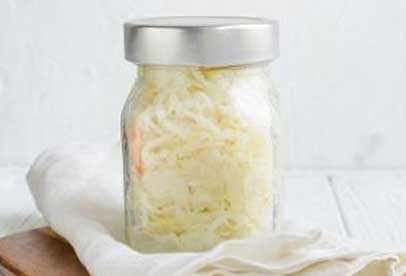
Fresh fruits and veggies arent always healthier than frozen, scientists say
A new study has debunked a commonly-held belief that the fresh, colourful fruits and veggies in the produce section are better for you than their frozen (often much cheaper) counterparts.
The paper, published last month in the Journal of Food Composition and Analysis, finds that frozen fruits and vegetables are, in many cases, more nutritious because fresh produce loses vitamins when left sitting in the fridge, even after just a few days.
For their study, the paper?s authors tried to replicate how most people buy, store, and eat their fruits and veggies. Over two years, they measured the nutritional content of three types of produce: fresh, frozen, and ?fresh-stored? (purchased fresh and stored in the refrigerator for five days). The items they examined were broccoli, cauliflower, corn, green beans, peas, spinach, blueberries, and strawberries.
The researchers compared the concentrations of three key nutrients in the fruits and vegetables: vitamin C, vitamin A, and folate. These nutrients are water-soluble and sensitive to heat, so they made good candidates to study when comparing frozen, fresh, and refrigerated foods.
Surprisingly, frozen fruits and veggies consistently outperformed ?fresh-stored? ones in tests of these nutrients.
?The findings of this study do not support the common belief of consumers that fresh food has significantly greater nutritional value than its frozen counterpart,? the authors write.
While fresh produce typically contains the highest amounts of nutrients at harvest, these nutrients start to degrade as soon as the foods are picked, packed, and assembled on produce displays. By the time we get them home and retrieve them from our refrigerators, many of these nutrients have fallen to levels lower than those seen in frozen produce, which are chilled almost as soon as they?re picked from the fields.
When it comes to vitamin C, for example, fresh vegetables typically contain higher amounts than frozen or canned veggies, a study in the journal Food Chemistry found. But nutrients break down fast ? a study in the journal Proceedings of the American Society of Horticultural Science found that green peas lost 52 per cent of their wet weight in the first 24 to 48 hours after picking.
Another analysis, done roughly a decade ago by food scientists at the University of California Davis, came to a similar conclusion as the latest paper. ?Depending on the commodity, freezing ... may preserve nutrient value,? the authors wrote, adding, ?exclusive recommendations of fresh produce ignore the nutrient benefits of ... frozen products.?
One takeaway here is that buying fruits and veggies and eating them immediately is probably your best bet, since the nutrients inside won?t have had too much time to degrade since harvesting. In most cases, however, the nutritional content of fresh and frozen produce is so similar that it won?t make a meaningful difference for your health to prioritise one or the other. And in some cases ? especially when we store food in the fridge for a while ? frozen produce wins altogether.
Related News

Looking towards India for design

Daily consumption of tea protects the elderly from cognitive decline

8 Time-Saving Meal Prep Ideas Nutritionists Actually Use

Medication Management Tips

Scientists found effective dandruff treatment

10 Most Effective Weight Loss Exercises For Torching Fat

Humans evolved to benefit from fermented foods

Working It Out: The future of work and digital
Most Read
★Exercise can help boost memory through bone hormone: Study
★Skin tone linked to fruit and vegetable consumption
★Learn How To Do Pearl Facial At Home To Get Naturally Glowing Skin Instantly
★Stop Lusting For a Radiant Skin Possess it with the Help of Super Foods
★This Yoga Flow Will Instantly Boost Your Mood
★This is how many calories your tea and coffee habit is adding to your diet EVERY DAY
★8 Practical Tips to Lose Weight Without Dieting
★Legumes, nuts and kale can help you get big muscles
★Dandelion Benefits Biodiversity, Soil and Your Health
★10 Most Effective Weight Loss Exercises For Torching Fat
★Top Fitness Stars Share Their Most Common Workout Habits
★Top 10 Diet and Fitness Tips for Men
★Pasta eaters may have better diet quality: study
★Healthy food that tastes good too
★Best and Worst Drinks for Weight Loss
★Acne sufferers likely to live longer than people with flawless skin
★Smoking and sight loss warning
★Teenagers use social media posts to appear attractive to friends
★Could laser hair removal give you CANCER?
★This One Exercise Helps You Become a Better Runner
★Yoga Heals More than Just Your Body
★12 Real Amazing Benefits Of Skipping For Weight Loss
★Aerobic training can help reverse ageing
★Learn to Do Vinyasa Yoga for Weight Loss
★Carbohydrates and sugars
★Hard work, no pay linked to mental health issues in comedians
★5 Exercises to Reduce Belly Fat
★Losing Weight in Hot Weather Made Easy
★5 Hot Yoga Poses For Rapid Weight Loss
★Study finds dramatic weight loss can be achieved WITHOUT counting calories
★How to Do Face Cleansing at Home?
★Natural Herbal Gummies
★Yoga Poses for People with Less Flexible Body
★Daily consumption of tea protects the elderly from cognitive decline
★Fruitylicious cure for ageing skin
★Breathe Right to Live a Healthier and Better Life
★Natural Ways to Remove Blackheads on Face and Nose
★The best skin care quickies men with oily skin can get
★Popular weight loss strategies
★15 Powerful Asanas of Yoga to Reduce Belly Fat
★Skin tone linked to fruit and vegetable consumption
★Best foods for healthy skin
★5 Yoga Poses that Can Give You a Glowing Skin
★3 Must Try Face Yoga Exercises For Glowing Face
★Healthiest Foods For Women
★Man has lived with giant neck for 13 years after going to doctors for help
★Does ginger gene offer key to younger looking skin?
★Why You Need to Start Combining Avocados and Peaches
★Haryana girl Nishtha Dudeja wins Miss Deaf Asia 2018 crown
★10 questions about laser hair removal
